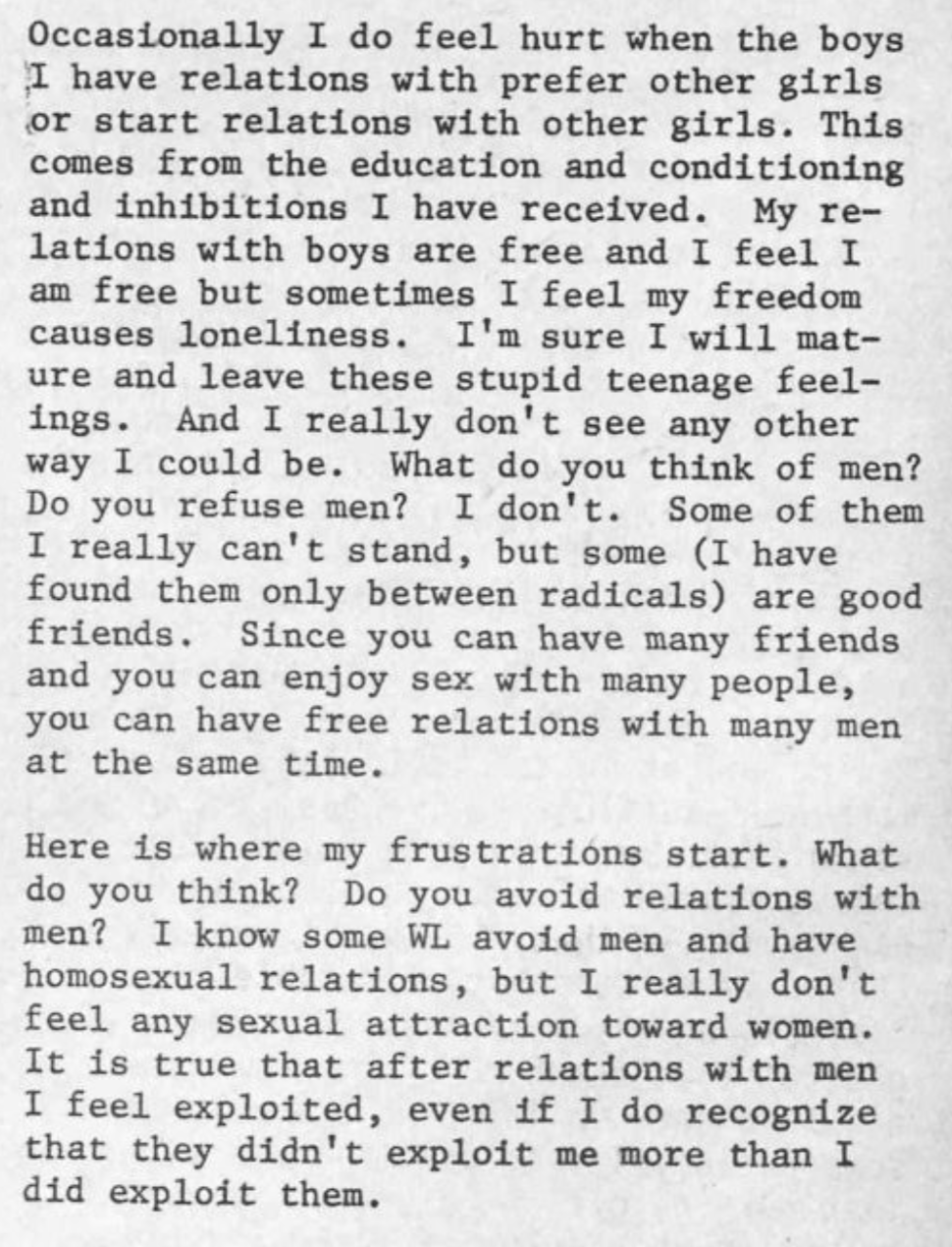NOTE: This is a repost of a piece I originally posted on Pillowfort, here.

This is speculation, but based on her description of herself, she might have identified as an aromantic heterosexual had she had that terminology at the time. You might think this is probably a stretch, but read this excerpt first:



But I think there might be more to it than that. She expresses here that she's so interested in this newspaper that she wants to purchase the full run and is excited to read them.


"Dear Sisters: I Have Been Willing to Write to You for a Long Time but I Never Had the Money to Send for the Newspaper." Aint I A Woman?, 30 Mar. 1972, p. 2. Archives of Sexuality and Gender, link.gale.com/apps/doc/XNTJNH070996486/AHSI?u=nypl&sid= bookmark-AHSI&xid=aaf6c7de. Accessed 8 July 2021.
Read the whole issue here: https://www.jstor.org/stable/community.28032141

This is speculation, but based on her description of herself, she might have identified as an aromantic heterosexual had she had that terminology at the time. You might think this is probably a stretch, but read this excerpt first:



She explicitly says she has never fallen in love, doesn't believe in love, and that the best form of love she has ever experienced is friendship. She enjoys having sex with some of her male friends. She states she feels no sexual attraction to women.
So why write in to a specifically lesbian feminist publication. It could be due to her radical political views. She expresses frustration at there being no "WL" (women's liberation) where she lives, and talks about reading leftist magazines.
But I think there might be more to it than that. She expresses here that she's so interested in this newspaper that she wants to purchase the full run and is excited to read them.

Again, I might be reading into this, but I think this makes perfect sense. She expresses feeling lost regarding her sexuality. She's clearly still trying to figure herself out. She eagerly asked questions of the newspaper editors about sexuality in the women's liberation movement.
There's so much of an expectation that women love men romantically. In 1972, that the lack of that drive might make someone head to the only option conceivable at the time, that a lack of loving men meant that perhaps she might love women. Yet, she recognized that she wasn't sexually attracted to women and was fine with sex with men. But that pressure for romance in society is quite possibly what made her interested in seeking out a lesbian feminist newspaper, because where else could she go for information?

It's stuff like this that makes it so obvious to me that aromantic people belong in the queer community. Their struggles aren't the same as people with other marginalized romantic orientations, but there's clear evidence that they are harmed by society's expectations for women to be romantic and to marry.
Citations:
"Dear Sisters: I Have Been Willing to Write to You for a Long Time but I Never Had the Money to Send for the Newspaper." Aint I A Woman?, 30 Mar. 1972, p. 2. Archives of Sexuality and Gender, link.gale.com/apps/doc/XNTJNH070996486/AHSI?u=nypl&sid= bookmark-AHSI&xid=aaf6c7de. Accessed 8 July 2021.
Read the whole issue here: https://www.jstor.org/stable/community.28032141
Tags: